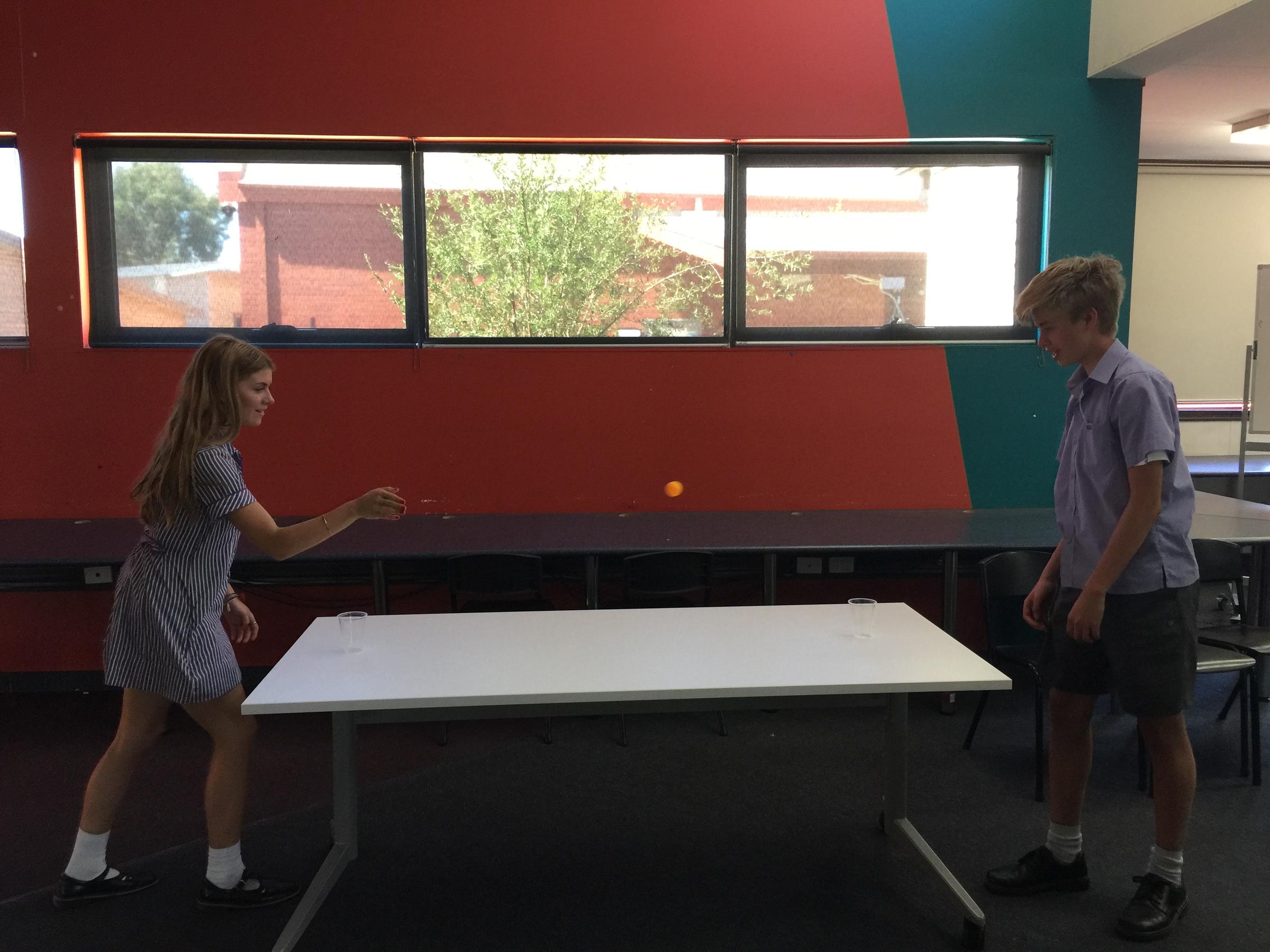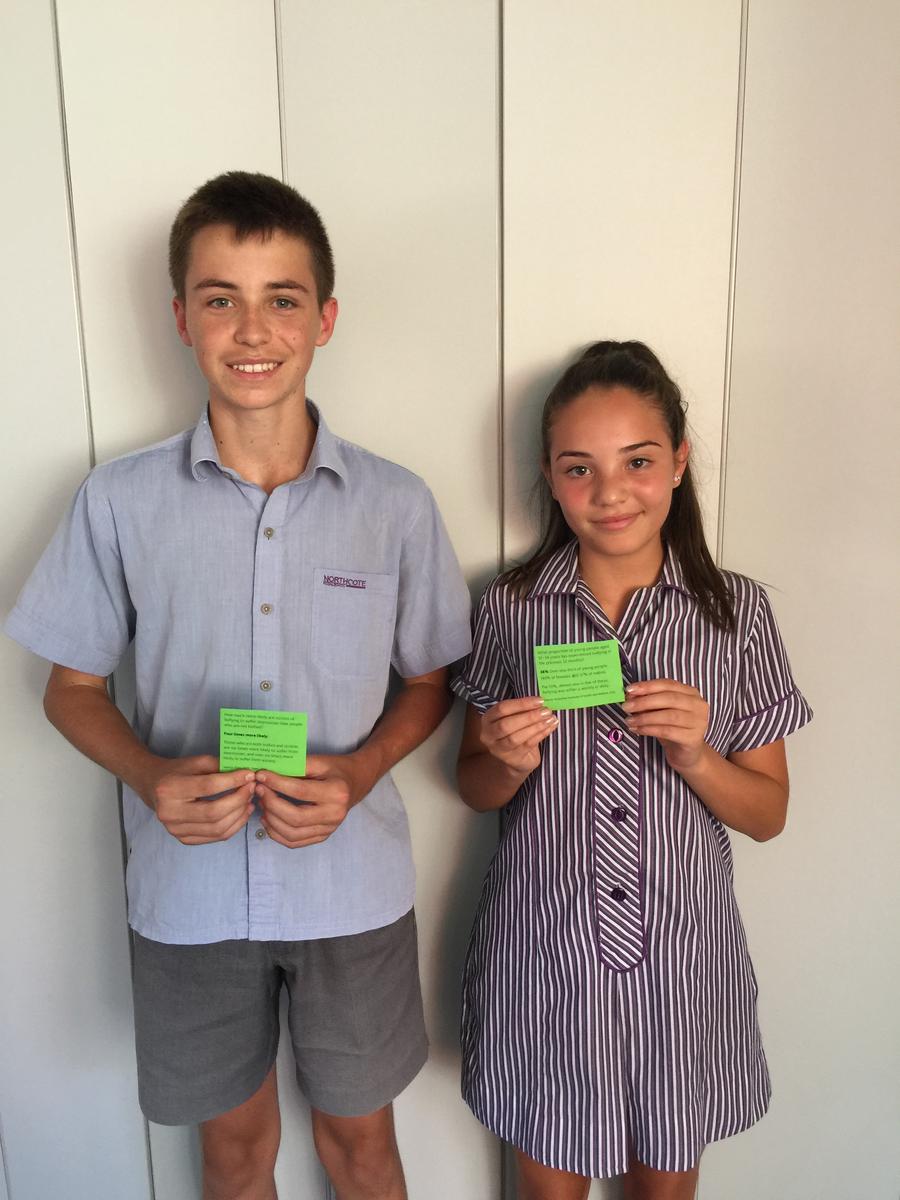Supporting social and emotional learning: Connect
Team-building activities in Connect

Supporting social and emotional learning: Connect
Team-building activities in Connect
The Connect program is an important part of how we build social, emotional and academic resilience, skills and connections at Northcote High School. Each student has Daily Connect time with their Tutor, and participates in weekly or fortnightly period-long sessions. Here is what the Middle School have been up to in Term One...
During this term our Year 9 students have spent time building relationships with their peers and tutors through a variety of icebreaker and team-building activities. We also revisited our values of Achievement, Curiosity, Humanity and Fairness and discussed how we can live them through our daily actions.
Our Year 9 students will also be participating in three lessons of a Growth Mindset unit. This unit is based on research by Carol Dweck. For more information on this topic, please see the following video: The Power of Belief - Mindset and Success. By Eduardo Briceno at TEDxManhattanBeach: https://www.youtube.com/watch?v=pN34FNbOKXc
Throughout the unit, students will be explore the following:
To access the student page, including resources for Year 9 - Term 1 Connect – please click here:
http://schoolbox.nhs.vic.edu.au/homepage/13940. The Connect program and resources for other year levels are also accessible on myNorthcoteHigh.
Sarah Green
Head of School – Year 9
Our Year 10 students will spend a couple of weeks focusing on Mental Health and Self-Esteem via classroom activities, discussions and videos.
Through these sessions, students will:


For the rest of the term, students will be introduced to key concepts from the Department of Education and Training ‘Resilience, Rights and Respectful Relationships’ learning materials. We will be focusing on developing student’s emotional literacy, positive coping, and problem solving. To access the full resource please click here: http://fuse.education.vic.gov.au/ResourcePackage/ByPin?pin=2JZX4R
Emotional Literacy - Research shows that students who participate in rigorously designed and well taught social and emotional learning programs demonstrate more positive social behaviour, are less likely to engage in risky and disruptive behaviour, and show improved academic outcomes. Building a large vocabulary for emotions helps to increase emotional literacy, build self-awareness and empathy for others.
Positive Coping - Research in the field of positive psychology identifies the difference between pessimistic and optimistic thinking styles. An optimistic thinking style is associated with greater persistence in the face of challenge and a better capacity to use resources and supports. Optimistic thinking styles can be learnt both through direct instruction and practice and through role modelling.
Problem Solving - One of the most positive ways to cope with a problem is to solve it! It is important to help students learn a range of problem solving skills through applied learning tasks so they are able to cope with the challenges they face in the future. Problem solving is identified by the World Health Organisation as a key skill for health and wellbeing. To be able to solve problems, young people need to be able to think critically and evaluate the consequences of various actions
To access the student page, including student resources for Year 10 - Term 1 Connect – please click here: http://schoolbox.nhs.vic.edu.au/homepage/5818
Scott Macdonald
Head of School - Year 10